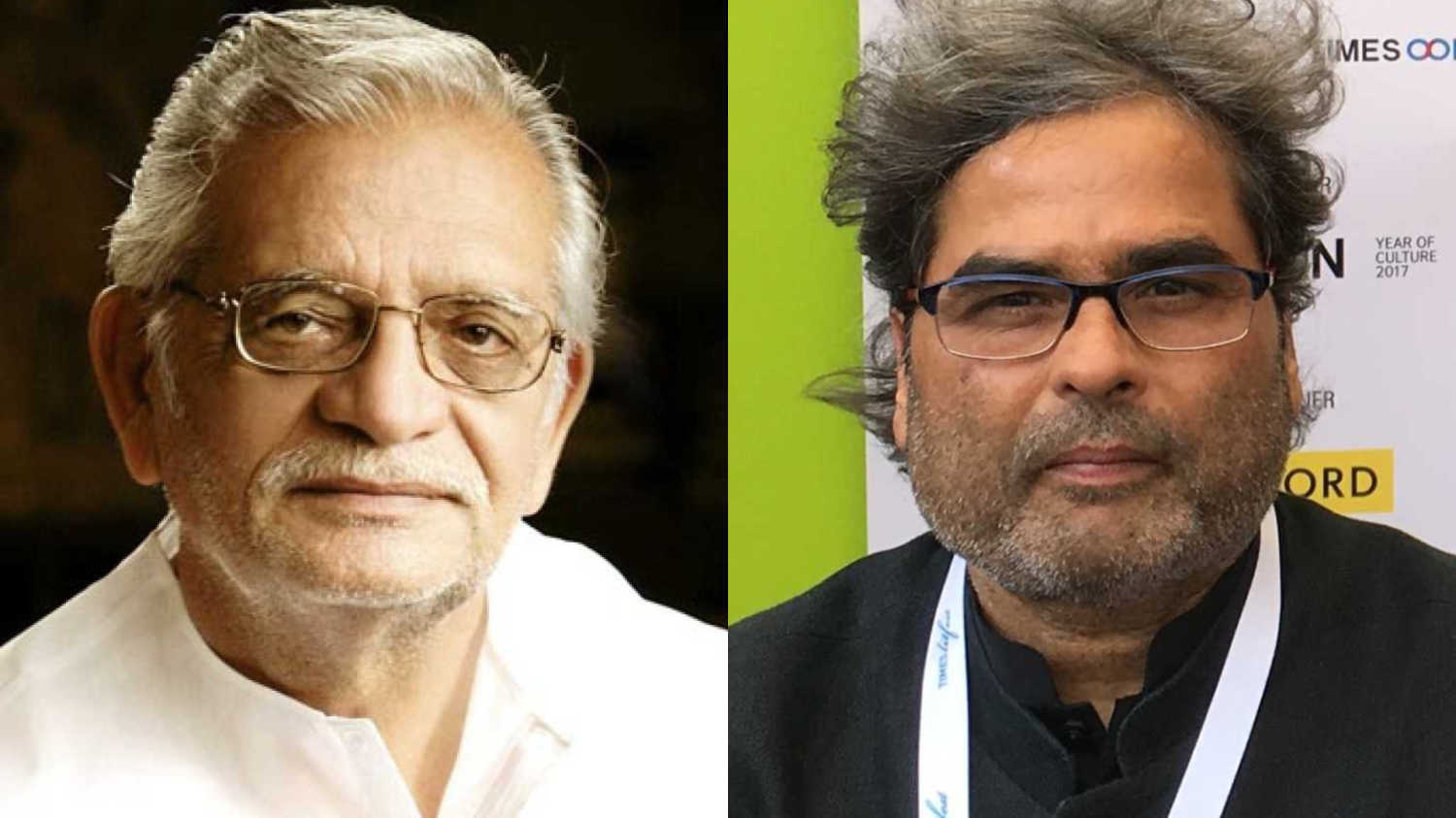The composer and the lyricist-filmmaker were speaking at the launch of the song 'Theek Nahi Lagta' ahead of Lata Mangeshkar's 92nd birthday.
Remixes are about creative bankruptcy: Vishal Bhardwaj and Gulzar on their pet peeve
Mumbai - 28 Sep 2021 12:30 IST


Shriram Iyengar
Even as they were announcing the launch of a 26-year-old song, rediscovered and released on the occasion of the great Lata Mangeshkar's birthday today, lyricist-filmmaker Gulzar and composer-filmmaker Vishal Bhardwaj were thankful for some things.
The song, 'Theek Nahi Lagta', was recorded back in 1996 for a film that was later shelved. This led to the song going missing for more than two decades, before it returned to Bhardwaj's hands.
Remarking on the incident, Gulzar commented, "Vishal, you escaped. Otherwise, he would have wasted his time in the search and had to see the song remixed. It is good that he found the song."
Agreeing with his mentor and regular lyricist, Bhardwaj added, "The culture of remix, I don't like it either. To barge into someone'else's work is like mutilating someone's creativity."
The Maqbool (2004) filmmaker added, "My son recently liked the 'Laila O Laila' remix ['Laila Main Laila' from Raees (2017)] and he did not know the composers of the original. The originality of the source is sometimes unknown to people. I think it is a question of creative bankruptcy."
Elaborating, Gulzar said, "The composers back then, for instance, SD Burman's songs, carry the essence of their time and culture. Now, if we put in sounds of instruments which did not even exist back then, it would sound odd. That would spoil it. SD Burman, Salil Chowdhury, Hemant Kumar's music is representative of their times, and should be enjoyed as such. That music carries with it a sense of history. It is relevant till today because of that essence."
While their opposition to remixes was clear, neither the composer nor the lyricist believes the music of the present is inferior. Bhardwaj said, "Our music is film music. As the aesthetic of the films was, so was the music. Once multiplexes arrived, film culture changed and reality has come into films. My favourite will be music from the 1960s and 1970s. SD Burman, RD Burman,Laxmikant-Pyarelal, Salil Chowdhury were masters during the time. Now, perhaps, it is possible we do not recognize the musical achievements of our time. A new generation will appreciate it more. But I do think post-2000 Hindi film music is better than that of the 1990s."
The veteran poet approached the subject from the perspective of literature, saying, "I spoke and wrote in the language of my times. Language is born of the time and culture. I used the words I know and there are some words which are going extinct. I keep trying to protect them through my writing. The new generation is protecting and expressing in their language. To deny them is not right either.
"The only thing," the Oscar-winning lyricist added, "is to be careful whether the words are born in and represent the world and culture around you, or are simply borrowed into it."



